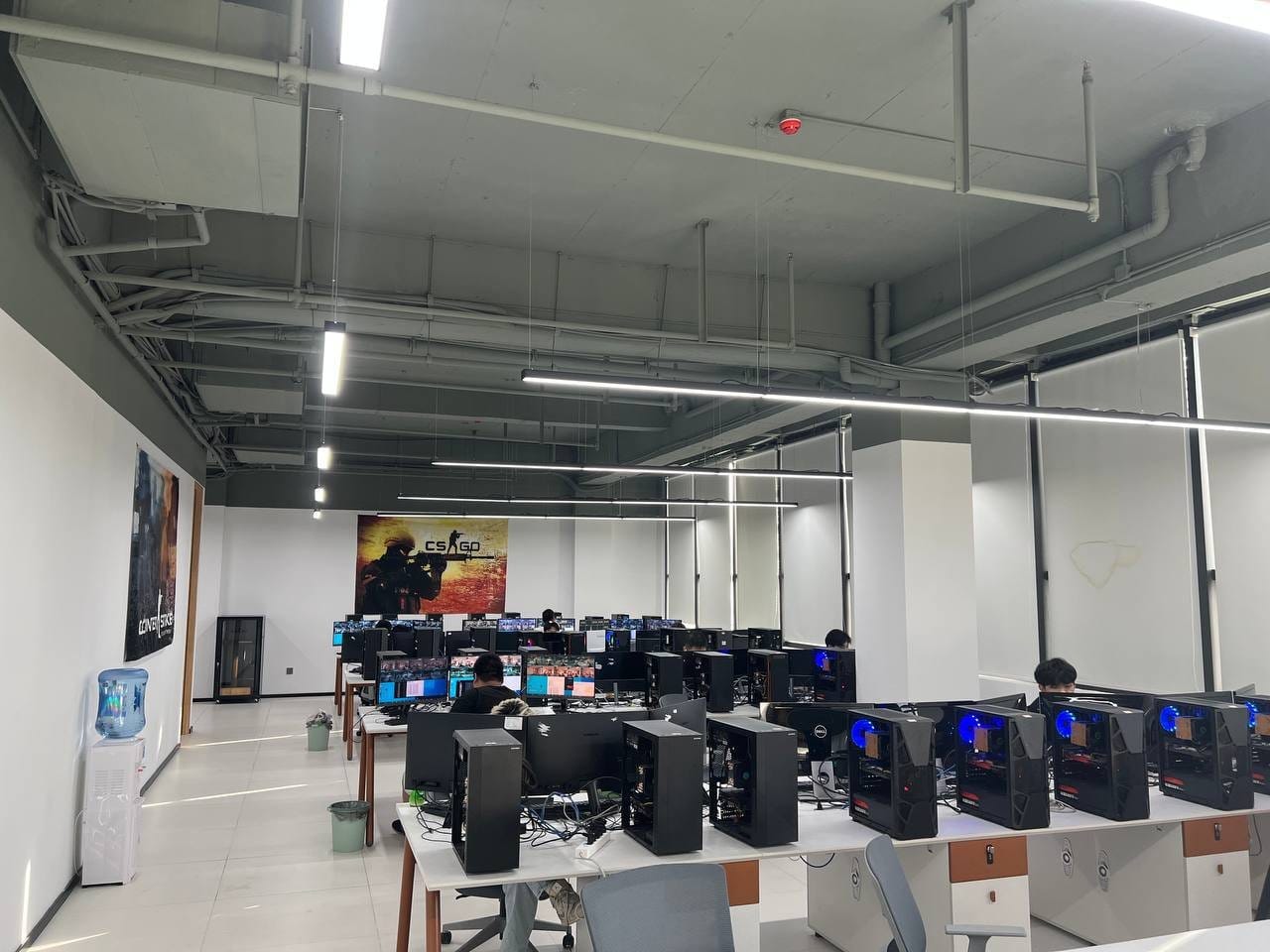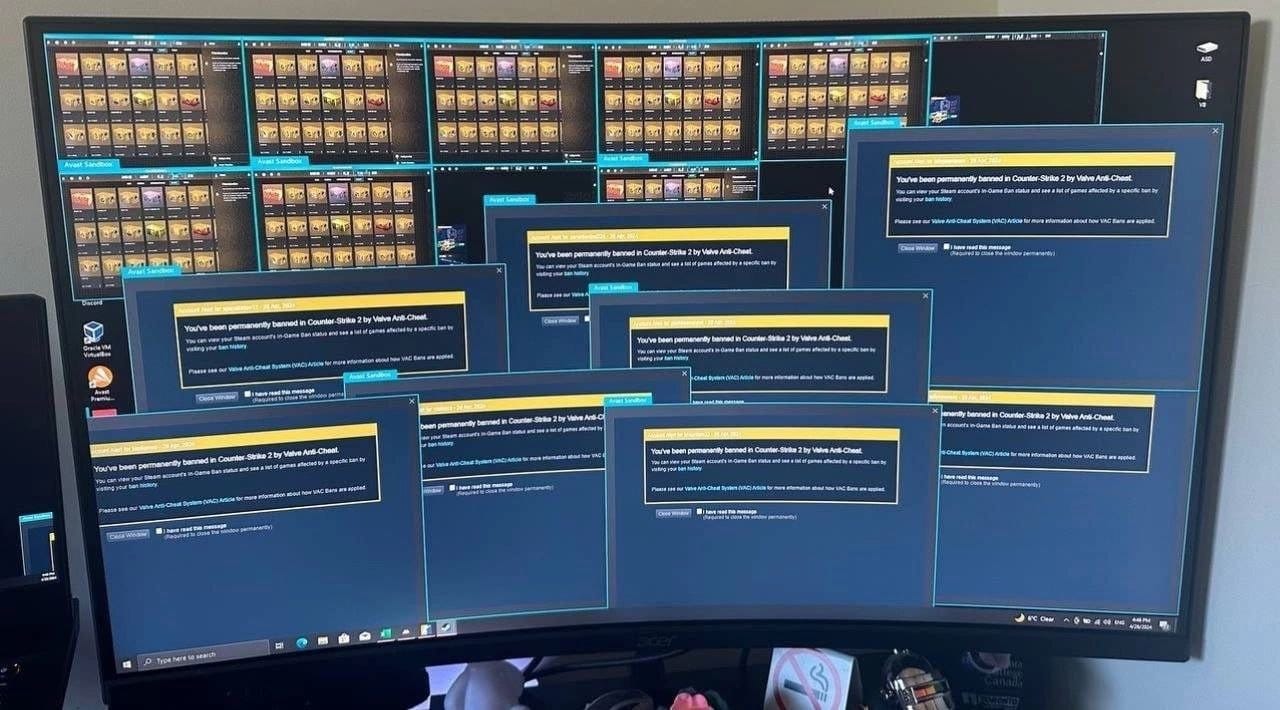CS2 Case Farming - A Look Into One of the Most Lucrative Gaming Operations

For someone unfamiliar with Counter-Strike, the idea of “case farming” may sound like a way to collect lots of in-game items fast, but it is much more than that. Many may fail to realize how much of a lucrative industry the case farming scene is, or how large some case farming operations are. CS2's case farming scene is massive, with several companies operating hundreds of thousands of bots, making millions of dollars. Some sources report that case farming in CS2 is even more profitable than mining cryptocurrency, though the source is unconfirmed, and there is no way to truly know.
Disclaimer: DO NOT CASE FARM
Though it may make a lot of money for certain users, case farming is potentially one of the stupidest things you can do in CS2. Not only does it ruin the experience of others, undermine the integrity of the game's economy, and put you at risk of legal action, but it is also a great way to get your Steam account banned. Just today, on May 29th, 2024, 300,000 accounts related to case farming have been banned, a ban wave that will likely bankrupt several case farmers and seriously damage the operations of others.
various sources are saying that cs2 devs banned more than 300k accounts related to bot farms
— Gabe Follower (@gabefollower) May 29, 2024
How do Case Farms Work?
Without going into too much detail, case farms essentially work like this:
- Case farmers build a setup of numerous computers, similar to a Bitcoin mining setup.
- The computers run bots that appear like real players and play CS2 24/7.
- Each week, the bots receive a case drop, just like every normal CS2 player.
- After the bots stock up some cases, the farmer sells them for real money and cashes in on the profit.
- With hundreds of thousands of bots operating, this equates to hundreds of thousands of dollars per month.
A Look Into a Case Farm
Thanks to @gabefollower on X, we have an inside look into one of many bot farms in China. Take a look at the video and images below to see how sophisticated some of these setups are.


These case farms operate countless PCs, each running 10 or more Steam accounts on each. As you can see in the left image, many accounts get banned thanks to Valve's crackdown on case farming, but clearly, these ban waves haven't been enough to stop the bot farmers from ruining the CS2 game and skin economy experience for millions of players.
How Much Money Do Case Farmers Make?
Too much money...
According to data from one of the largest bot farm developers, all case farmers worldwide make a total of $600,000 per month. However, this only accounts for one program, and with countless programs out there, it is safe to assume that this industry brings in over $1,000,000 per month by damaging the CS2 economy and players' experience.
Why is this Bad?

There are a few reasons why case farming is bad. Firstly, it ruins the game experience for tons of players. Case farmers single-handedly destroyed the Flying Scoutsman game mode in CS:GO, and have been a pain for anyone trying to play Deathmatch in Asian CS2 servers. Along with this, case farmers create lots of issues for the CS2 economy. By adding hundreds of thousands of cases to the supply every month, these farmers are destroying the ratio of supply to demand, pushing case prices down by prices that have destroyed thousands of investors and made weekly drops almost worthless. Along with this, case farmers have been the subject of lots of ban waves as of late, meaning they are taking Valve's focus away from anti-cheat and helping to make the CS2 cheating problem even worse.
Conclusion
CS2's case farming industry is one of the most lucrative and morally reprehensible operations in the entire gaming industry. It ruins the game experience for millions of players and destroys the CS2 case market while lining the pockets of the already rich who couldn't care less about CS2 or skins. We applaud Valve's recent crackdown on case farming and hope that they can eradicate the practice for good before it becomes out of hand.

